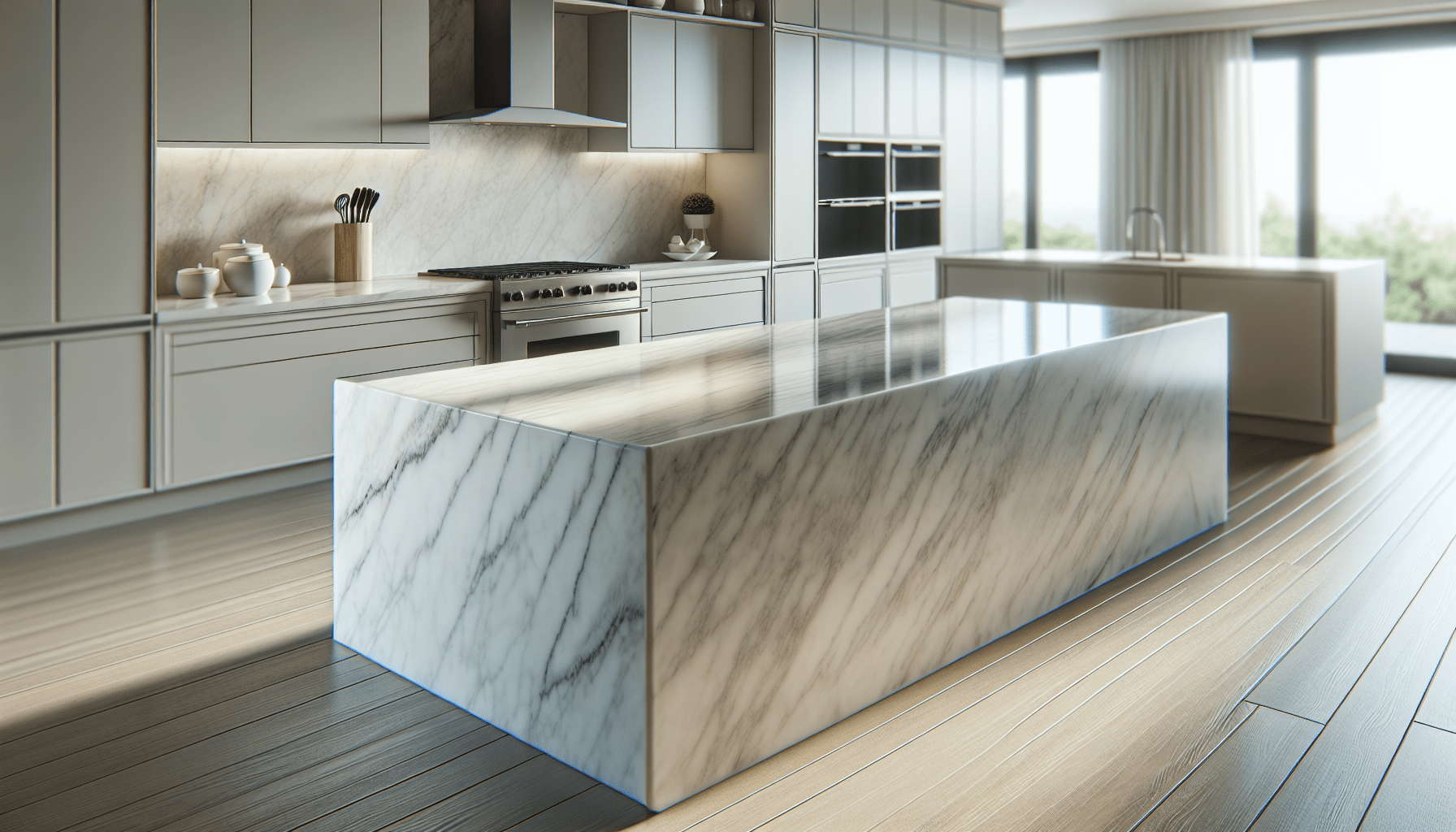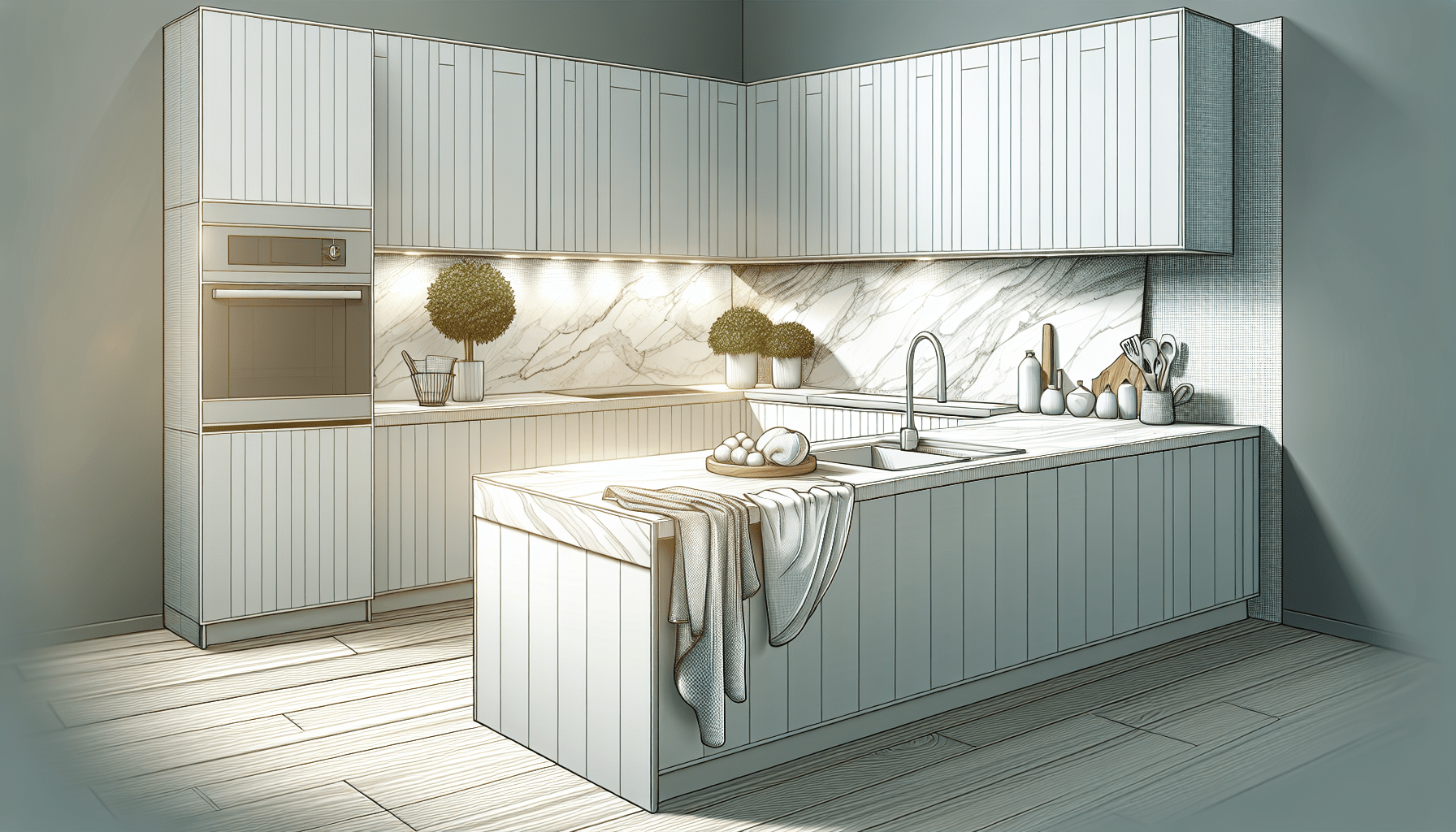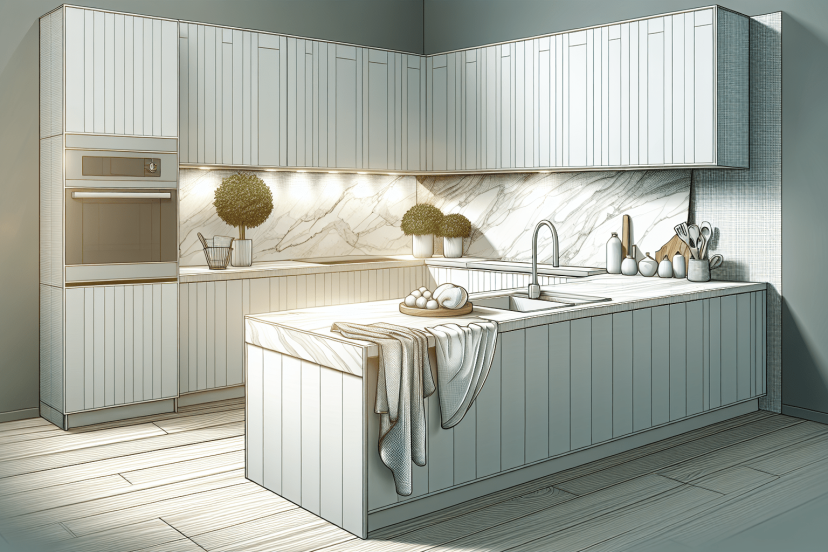Can You Use New Countertops Right Away?
You’ve just had your old countertops replaced with brand new ones, and you’re eager to start using them. But before you start chopping, slicing, and cooking up a storm, you’re wondering if it’s safe to use your new countertops right away. Well, good news! In most cases, you can indeed start using your new countertops immediately. However, there are a few factors to consider to ensure the longevity and durability of your new investment. So, let’s explore the dos and don’ts of using new countertops right away!

Inspecting the countertops
When you first have new countertops installed in your kitchen or bathroom, it’s important to take the time to thoroughly inspect them. Start by checking for any damages or defects. Look for chips, cracks, or any other signs of physical damage that may have occurred during the installation process or transportation. If you notice any issues, be sure to contact the installer or manufacturer right away to address the problem.
In addition to checking for damages, it’s crucial to ensure that the countertops are securely in place. Look for any signs of instability or movement. Gently press on the countertops to see if they are securely adhered and do not shift or wiggle. If you notice any movement, it’s vital to have the countertops properly secured to prevent any potential accidents or damage in the future.
While inspecting the countertops, take a close look for any visible signs of imperfections. These imperfections can include inconsistencies in color or texture, uneven edges or surfaces, or any other aesthetic issues. Although some imperfections may be minor and purely cosmetic, it’s important to address any concerns you may have with the installer or manufacturer, as you want your countertops to meet your expectations and look their best.
Lastly, verify if the countertops are properly sealed. Sealing is an essential step in protecting your countertops from stains and damage. Most countertop materials require sealing to ensure their longevity and resistance to everyday wear and tear. Take a look at the surface of the countertops and check if water beads up or soaks into the material. This will give you an idea of whether the countertops have been adequately sealed or if additional sealing is necessary.
Understanding the countertop material
Different countertop materials have varying care requirements. It’s essential to research and understand the specific needs of your chosen countertop material to ensure its longevity and performance. For instance, natural materials like granite and marble require regular sealing to maintain their integrity, while engineered materials like quartz may not require sealing at all.
Consider the durability and maintenance needs of the countertop material. Some materials are more susceptible to scratches, stains, or heat damage than others. Understanding how to care for your countertops will help you avoid any costly mistakes or irreversible damage. Additionally, learn about any specific curing or drying time required before you can start using and enjoying your countertops fully.
Guidelines for immediate use
Before you start using your new countertops, it’s important to follow some guidelines to ensure their proper care and maintenance. Start by carefully reading and following the manufacturer’s instructions. They will provide you with specific information on how to install, care for, and use your countertops.
allow for appropriate curing or drying time as recommended by the manufacturer. Some countertop materials may require a certain period for adhesives or sealants to fully set and achieve their optimal strength. By patiently waiting for the recommended time, you can avoid any potential damage or compromise to your countertops.
Before using your countertops, make sure to clean them thoroughly. Remove any dust, residue, or cleaning agents left behind during the installation process. This will not only make your countertops look their best, but it will also ensure a clean and hygienic surface for food preparation and everyday use.
Lastly, avoid placing hot objects directly on the surface of your new countertops. While some materials are more heat-resistant than others, it’s generally a good practice to use trivets or hot pads to protect your countertops from potential heat damage. This will help maintain their appearance and prevent any unsightly marks or discoloration.
Countertop protection and maintenance
Once you start using your countertops, there are several measures you can take to protect them and keep them in optimal condition. Using cutting boards and trivets is highly recommended to prevent scratches, dents, or other forms of damage. Placing these protective barriers between the countertop surface and any sharp objects or hot pots and pans will help extend the lifespan of your countertops.
Consider using protective sealants or coatings to further enhance the durability and stain resistance of your countertops. These products can provide an additional layer of protection against spills, stains, and chemicals. However, it’s important to note that not all countertop materials may require sealants or coatings, so it’s best to consult the manufacturer’s recommendations or seek professional advice.
Clean spills immediately to prevent any potential staining or damage. Use a gentle, non-abrasive cleaner that is suitable for your countertop material. Avoid using harsh chemicals or abrasive scrubbing pads, as they can scratch the surface or strip away protective coatings. Regularly clean and sanitize the countertops to ensure a hygienic and inviting space for food preparation and daily activities.

Factors affecting immediate use
Several factors can affect the immediate use of your new countertops. The installation method and adhesive used play a significant role in how soon you can start using the countertops. Some adhesives may require additional curing time before they provide a secure bond, while others may allow for more immediate use.
The type of countertop material you have chosen will also determine how soon you can use the countertops. Natural stone materials, such as granite or marble, may require sealing and curing time, whereas engineered materials like quartz may be ready for immediate use after installation. Understanding these material-specific considerations will help you plan and prepare accordingly.
Curing and drying time is another factor to consider. Certain countertop materials or cements used in the installation process may require a specific amount of time to fully cure or dry before reaching their optimal strength. It’s important to follow the recommended timeframes to avoid any potential damage or compromise to your countertops.
Some countertop materials, particularly porous ones, may require sealing to protect them from staining and damage. If your countertops need to be sealed, it’s essential to consider the curing time for the sealant as well. This additional step may delay the immediate use of the countertops, but it is crucial for their long-term durability and performance.
Addressing specific countertop materials
Different countertop materials have their own unique characteristics and care requirements. Let’s take a closer look at some popular options and what you need to know about each:
Granite countertops:
Granite countertops are known for their durability and natural beauty. They are resistant to heat and scratches but may require regular sealing to prevent stains. It’s important to follow the manufacturer’s instructions for sealing and maintenance to extend the lifespan of your granite countertops.
Quartz countertops:
Quartz countertops are engineered stone surfaces that are highly durable and resistant to stains and scratches. They are non-porous, which means they do not require sealing. However, it’s still important to follow the manufacturer’s recommendations for cleaning and maintenance to keep your quartz countertops in top condition.
Marble countertops:
Marble countertops are a timeless and elegant choice, but they require special care. Marble is a softer and more porous stone, making it susceptible to scratches, stains, and etching from acidic substances. Regular sealing and gentle cleaning are essential to preserve the beauty of your marble countertops.
Laminate countertops:
Laminate countertops are a cost-effective and versatile option. They are relatively low-maintenance, resistant to stains and scratches, and easy to clean. However, laminate can be prone to chipping or peeling at the edges, so it’s important to avoid excessive force or impact.
Solid surface countertops:
Solid surface countertops, like Corian or acrylic, are durable and attractive options. They are non-porous, hygienic, and resistant to stains. Solid surface countertops are generally low-maintenance but may require occasional buffing to remove any minor scratches.
Potential risks of immediate use
While it may be tempting to start using your new countertops right away, there are potential risks associated with immediate use. Here are some risks you should be aware of:
Surface damage and scratching:
Using the countertops before they are fully cured or without taking proper precautions can result in surface damage and scratching. Freshly installed countertops may still be vulnerable to scratches from sharp objects or abrasive cleaners. It’s important to follow the manufacturer’s recommendations and allow for adequate curing time to avoid any accidental damage.
Staining and discoloration:
Countertop materials, especially natural stones, can be prone to staining if not properly sealed or maintained. Spills, particularly of acidic substances, can leave permanent marks or discoloration on the surface. It’s essential to clean spills promptly and use appropriate cleaning products to avoid any staining or discoloration.
Reduced lifespan and durability:
Using the countertops before they are ready or neglecting proper care and maintenance can significantly reduce their lifespan and durability. Without regular sealing, cleaning, and protection, your countertops may be more susceptible to damage, wear, and tear. It’s important to strike a balance between enjoying the convenience of your new countertops and ensuring their long-term condition.
Compromised hygiene and safety:
If the countertops are not thoroughly cleaned before use, or if they are not properly sanitized during regular cleaning, it can compromise hygiene and safety. Bacteria and contaminants can accumulate on the surface, leading to potential health risks. By following proper cleaning and sanitizing practices, you can maintain a clean and safe environment for food preparation and daily activities.
Consulting professionals for advice
If you have any questions or concerns about the use and maintenance of your new countertops, don’t hesitate to seek professional advice. The following professionals can provide valuable guidance based on their expertise:
Countertop manufacturer or installer:
The manufacturer or installer of your countertops is a reliable source of information regarding their specific care requirements. They can provide guidance on sealing, cleaning, and maintenance to help you maximize the lifespan of your countertops. If you encounter any issues or defects, they can also assist you with repairs or replacements.
Interior designer or architect:
If you worked with an interior designer or architect during the countertop selection and installation process, they can offer insight into the best practices for maintaining and caring for your new countertops. They may have specific suggestions based on your personal preferences and the overall design of your space.
Professional cleaner or maintenance specialist:
For professional advice on cleaning and maintaining your countertops, consider consulting a cleaner or maintenance specialist. They can provide recommendations on suitable cleaning products, techniques, and frequency to keep your countertops in optimal condition. Their expertise can help you address any specific challenges or concerns you may have.
Final thoughts
When it comes to using new countertops right away, it’s important to balance your excitement with the long-term condition of your countertops. Thoroughly inspect them for any damages or defects, ensure they are securely in place, and check for visible signs of imperfections. Understand the care requirements of your countertop material and follow the appropriate guidelines for immediate use.
Protect your countertops by using cutting boards and trivets, applying sealants or coatings if recommended, and promptly cleaning up spills. Factors such as installation method, countertop material, curing and drying time, and sealing requirements can affect the timeline for immediate use. Consider the specific recommendations for your countertop and consult professionals if needed.
By regularly maintaining and caring for your countertops, you can ensure their longevity, durability, and visual appeal. Follow the guidelines provided by the manufacturer, balance convenience with the need for proper care, and enjoy your beautiful and functional countertops for years to come.




